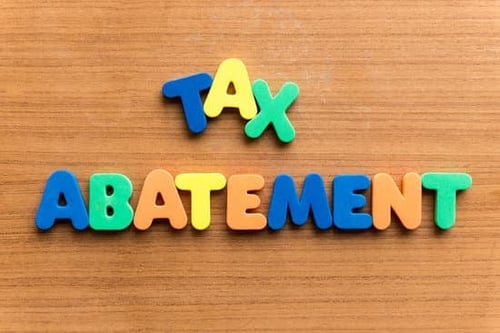Powell Tax Law Blog

Understanding Innocent Spouse Relief: What You Need to Know
While “Innocent Spouse Relief” sounds like an episode title from “Unsolved Mysteries”, it’s actually an Internal Revenue Service (IRS) term.
Here's the backstory: When it comes to filing taxes, married couples often choose to file jointly to take advantage of certain benefits.
However, what happens when one spouse is unaware of the other's tax misconduct? Every year in the U.S., spouses are blindsided with surprise tax debts.
In such cases, the IRS offers a provision called "Innocent Spouse Relief" to protect the uninvolved spouse from bearing the consequences of their partner's actions.
Let’s dive into the details of Innocent Spouse Relief, its history, eligibility criteria, and why consulting a professional tax expert is crucial.
What is Innocent Spouse Relief?
Innocent Spouse Relief is a provision in the U.S. tax law that allows a spouse to seek relief from joint tax liability when their partner has misrepresented or erroneously reported income on their joint tax return.
This relief is designed to protect spouses who are unaware of their partner's tax misconduct and would otherwise be held responsible for the resulting tax debt, penalties, and interest.
Innocent spouse relief is only for taxes due on your spouse's income from employment or self-employment. You can't claim relief for taxes due on:
- Your own income.
- Household employment taxes.
- Individual Shared Responsibility payments.
- Business taxes.
- Trust fund recovery penalties for employment taxes.
History of Innocent Spouse Relief
The concept of Innocent Spouse Relief was introduced in the 1970s when Congress recognized the need to protect spouses from being unfairly held liable for their partner's tax debts.
The provision was initially included in the Innocent Spouse Act of 1971 and later expanded in the 1998 IRS Restructuring and Reform Act.
Over the years, the IRS has made several amendments to the rules surrounding Innocent Spouse Relief to ensure fairness and accessibility for taxpayers.
Innocent Spouse Relief: Rules and Regulations
To qualify for Innocent Spouse Relief, several conditions must be met:
- The tax understatement or deficiency must be attributable to your spouse's errors or omissions.
- You must establish that you were unaware of and had no reason to know about the tax understatement when you signed the joint return.
- It would be unfair to hold you liable for the tax debt based on the facts and circumstances of your situation.
Additionally, you must file Form 8857 (Request for Innocent Spouse Relief) within two years of the date the IRS first attempts to collect the tax debt from you.
The IRS says you may request innocent spouse relief if:
- You filed a joint return with your spouse.
- Your taxes were understated due to errors on your return.
- You didn't know about the errors.
- You live in a community property state.
Errors that can cause understated taxes include:
- Unreported income.
- Incorrect deductions or credits.
- Incorrect values given for assets.
When you file a joint tax return with your spouse, regardless of how you file, you are both responsible for the tax and any interest or penalty due. This is true even if:
- You later divorce.
- A divorce decree states that your spouse is responsible for the taxes.
- Your spouse earned all of the income.
Qualifying for Innocent Spouse Relief
If you believe you qualify for Innocent Spouse Relief, you must provide evidence to support your claim.
This may include documentation showing that your spouse was responsible for the tax understatement, proof that you were unaware of the errors, and evidence demonstrating that holding you liable would be unjust.
You are not eligible for relief in any year when:
- You signed an offer in compromise with the IRS.
- You signed a closing agreement with the IRS covering the same taxes.
- A court made a final decision denying you relief.
- You participated in a related court proceeding and didn't ask for relief.
The IRS will review your case and make a determination based on the information provided.
“We'll review your request and contact your spouse or former spouse to ask if they want to participate in the process,” says the IRS. “We may take up to 6 months or longer to review your request. While you wait, continue to file and pay your taxes as usual. When our review is complete, we'll send a letter of determination with our decision.”
Tax Relief for Qualifying Spouses
If your request for Innocent Spouse Relief is approved, you will be relieved of the tax liability, penalties, and interest associated with your spouse's tax misconduct.
This means you will not be held responsible for paying the tax debt, and the IRS will pursue collection solely from your spouse.
If your request for Innocent Spouse Relief is denied, you have a right to appeal the decision. You must appeal within 30 days form the date on your preliminary determination letter.
Once the IRS makes a final determination, the requesting spouse can petition the United States Tax Court within 90 days to review the decision.
Consulting a Professional Tax Expert
Navigating the complex world of tax laws and IRS regulations can be overwhelming, especially when dealing with sensitive issues like Innocent Spouse Relief.
It is highly recommended to consult a professional tax expert, such as a certified public accountant (CPA), enrolled agent (EA), or professional tax attorney who can provide personalized guidance based on your specific situation.
“Our experienced tax attorneys can help you understand your eligibility, gather the necessary documentation, and represent you in communications with the IRS,” explains Steve Powell of Powell Tax Law.
Innocent Spouse Relief is a crucial provision that protects taxpayers from being unfairly burdened with their spouse's tax debts.
By understanding the rules and eligibility criteria surrounding this relief, you can take steps to safeguard your financial well-being.
Remember, seeking the advice of a professional tax expert is always a wise decision when dealing with complex tax matters.
Reach out to Powell Tax Law today in Houston, San Antonio, and Austin for representation in case with the IRS every step of the way.







